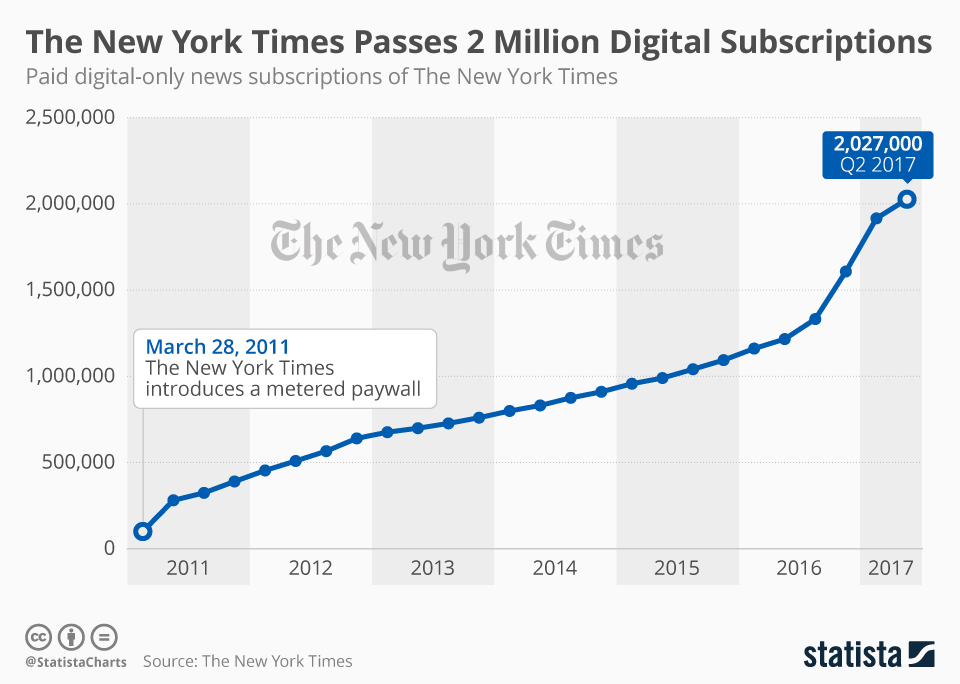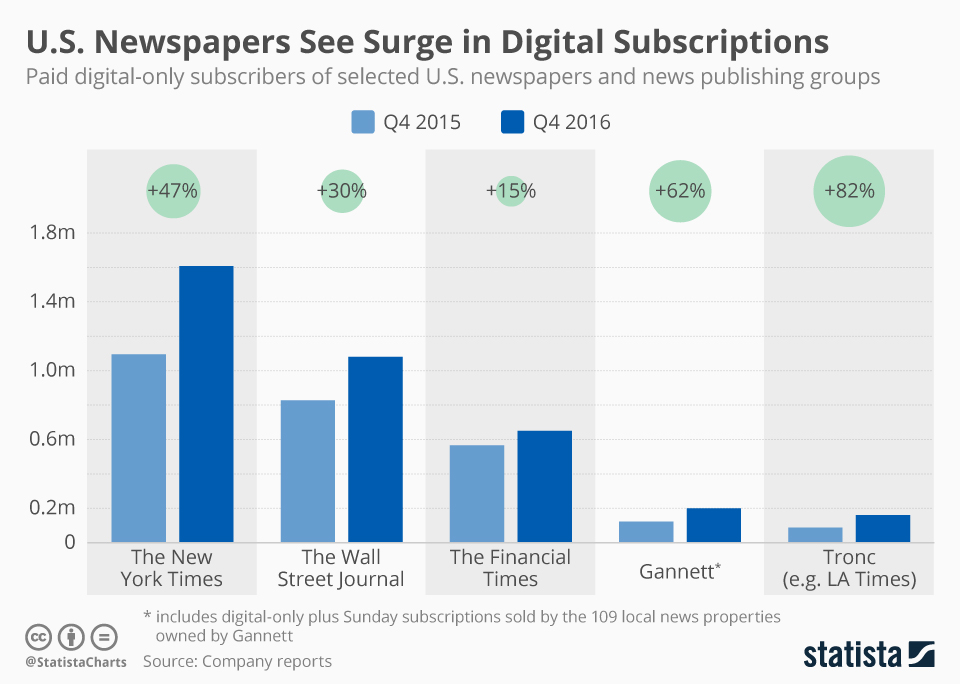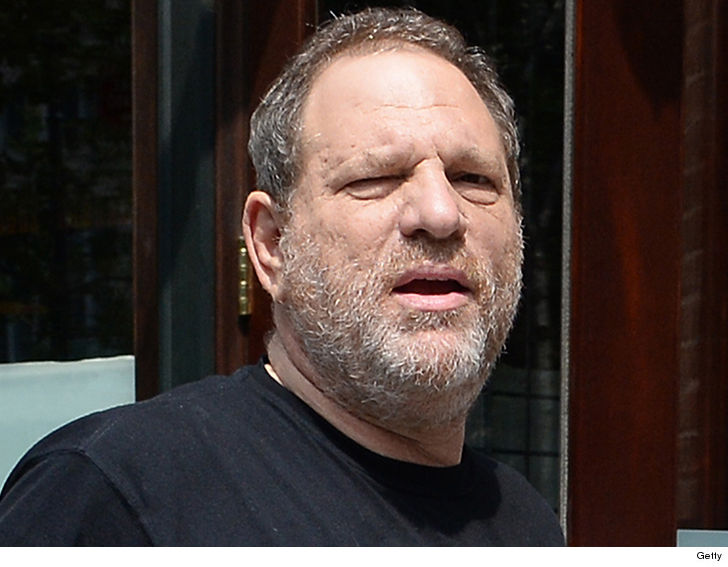The latest report from Dagens Nyheter, one of Swedens leading news institution, is that they now have 120.000 digital subscribers. Beating the annual target with three weeks to go for the year. A huge congratulation for a job well done is in order! Congratulations Peter and Dagens Nyheter!
This summer i touched upon this subject, and was quite pessimistic about the prospects of the paywall. Events, since then has somewhat change my view, however i stil hold most of the underlying thoughts in this post to be true.
What is changing is that the interests of the reader and the news organization is starting to align.
As subscribers signed up to DN the movement of #metoo has continued to shine a light on the massive injustices that women has been exposed to for so long. One common question in the #metoo debate has been, why now? What’s different this time? It’s not like this questions hasn’t been addressed before – but then with far less dramatic results.
It is clear that journalism has had an extremely important impact on this movement, and you could suspect that this reporting has had some impact on the results for DN, in the last quarter. The correlation between these to things is something worth thinking about.
Of course there are many societal circumstances why it at this point has become such a huge movement. But, one point, that is less talked about is that the business models for news are in a period of dramatic change, somewhat highlighted with the figures above.
But more apparent with the long winding downfall of advertising revenue that has been hitting the business since 2005.
Clearly, Dagens Nyheter, as well as the really big ones like New York Times, is quickly moving from an advertising based model to a subscription-based model.
And the change is going quite fast. The NYT ended 2016 with 1,6 million digital news subscribers, up 47% compared to last year.
At the same time, the ad revenue for 2016 was down approximately 9%.
The fall of the gatekeepers
Brexit and the Trump-vicotry, and some other events has been hailed as the reason for the growth in digital subscriptions, but I claim that the underlying theme here is the inter-connection between readers supporting media directly, without the advertising intermediary and the increased freedom of journalists to be able to follow through with disagreeable stories with huge negative impact on influential people, companies and structures that does wrong, but to the benefit and service of the people.
Investigative journalism has always been the characteristic that most media has strived for. Historically though, someone like Harvey Weinstein could have serious impact on the ad revenue for a magazine like NYT. The reason the well-known Harvey Weinstein-story broke now is because, the impact of a company like Miramax or the Harvey Weinstein Co, is becoming less important to NYT. At the same time, the more stories like this, NYT are able to put forward, the reason to subscribe increases.
So people like Weinstein, with their gatekeeping roles on all sides, like deciding on who will get the leading parts in the major movies, and using their leverage towards media get away with horrendous behaviour now has significantly less yield on that power.
And, finally, the media serves the people, because it is paid directly by the people to shine a light on misalignments like these. And again, as with so many other important changes in society, this one to can be written up on behalf of the internet.
The ad-based model is fundamentally flawed
I written about this before. The news institution was invented as advertising vehicle. To get people in front of the ads, they needed content. This is crude, but it is the heritage, that in many ways still affects how news is being produced. So tabloid journalism and clicky-headlines, isn’t that what journalism for the people looks like? That output is an anomaly to serve the advertiser more viewers, not the people with meaningful content. The “people get what they want” because they click it, is a fallacy as gross as only serving candy at school lunches, and then claiming that teenagers don’t like to eat healthy.
Even with my previous hostility, i’m surprisingly happy to see this development. The joy of seeing obscene structures fall apart combined with an sense, that actually, for the first time in a very long time i see a clear value in the news product delivered to me digitally.
As interests align, and advertisers has less impact on the decisions taken by editors, i think it ultimately favours the reader.
/C



